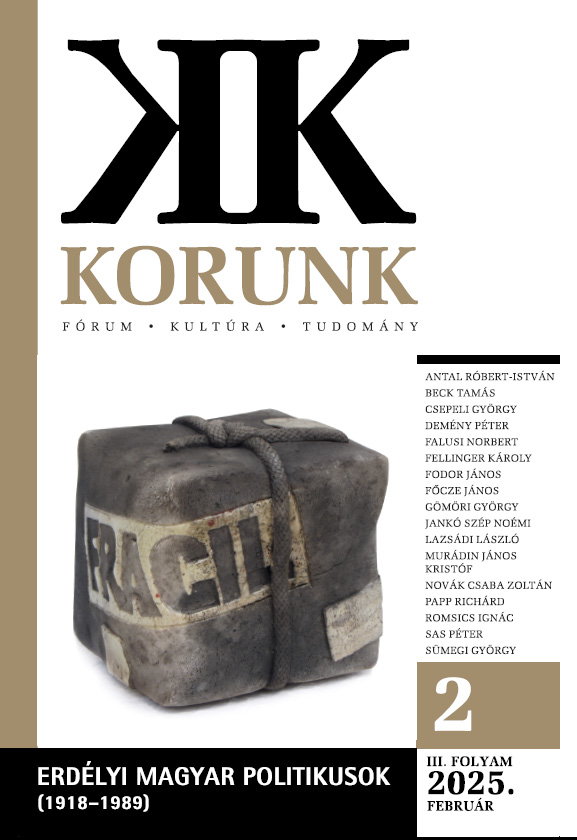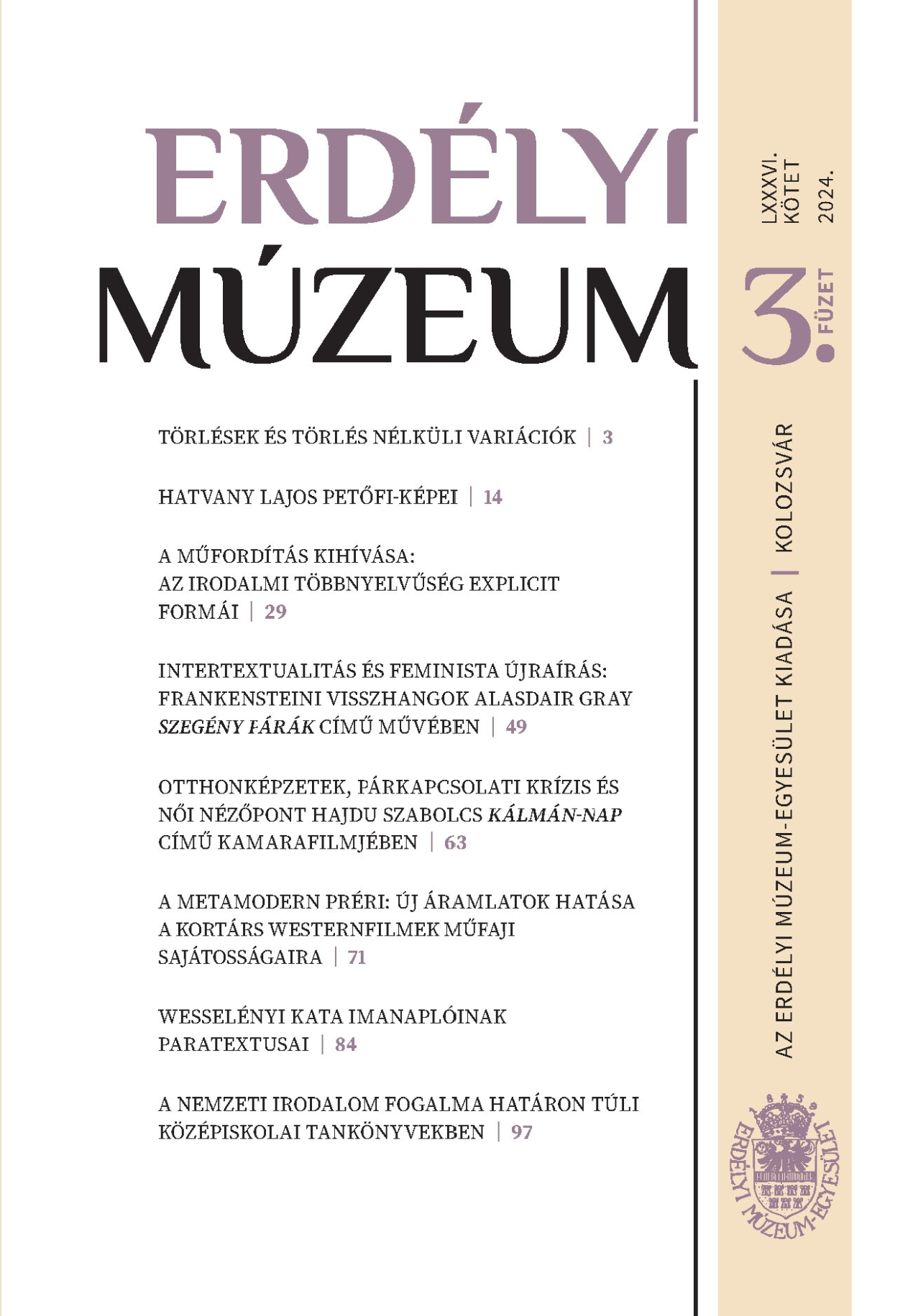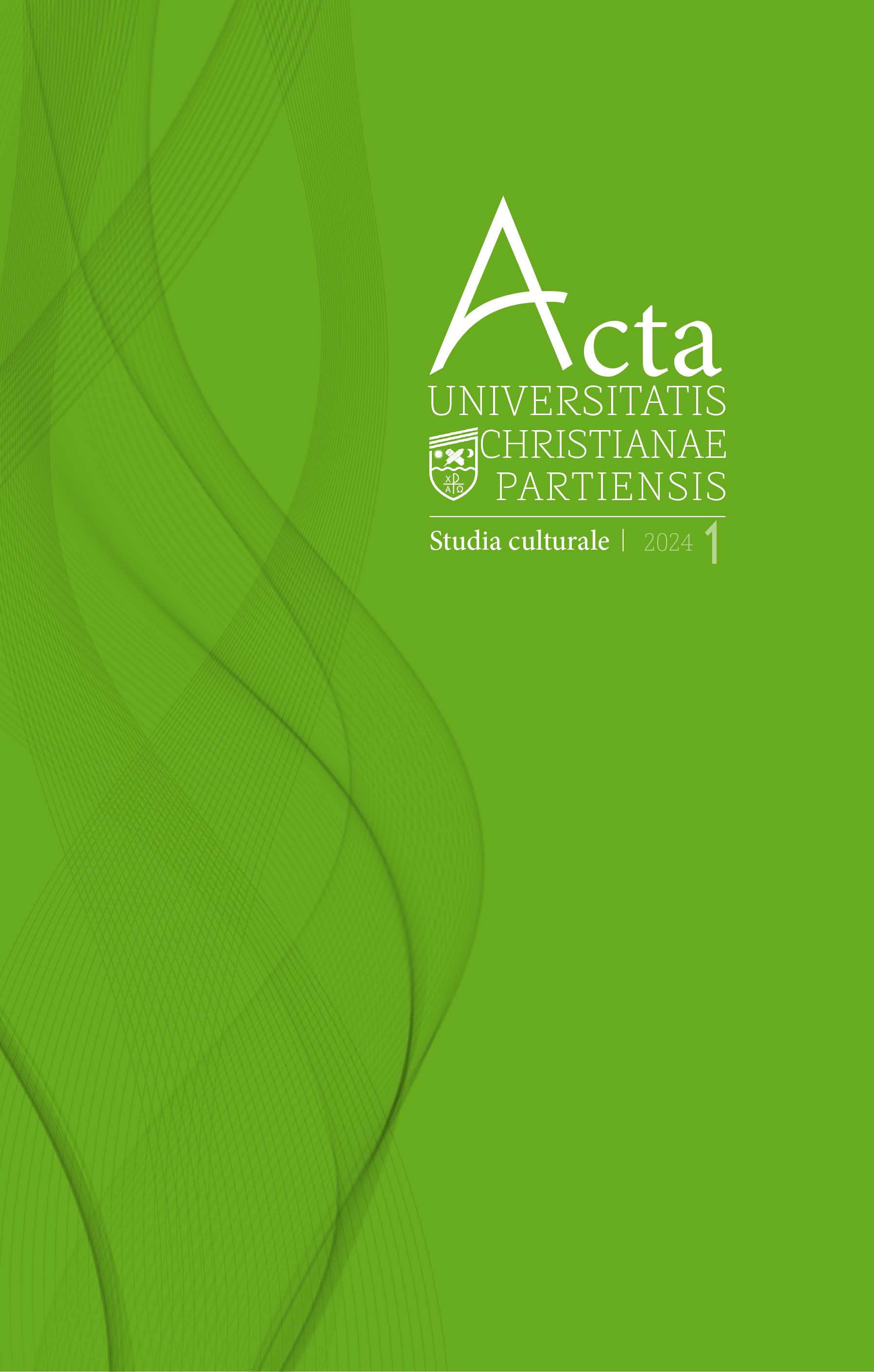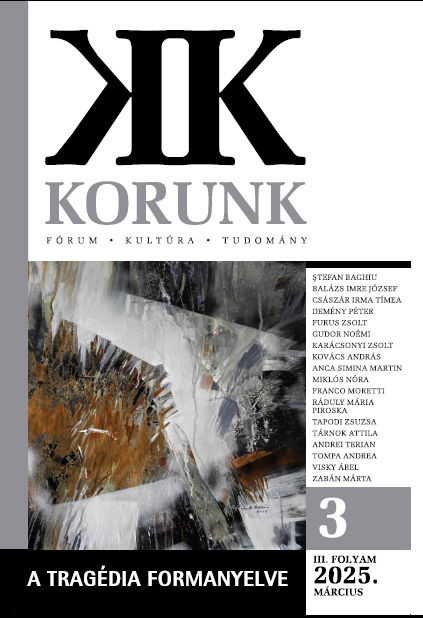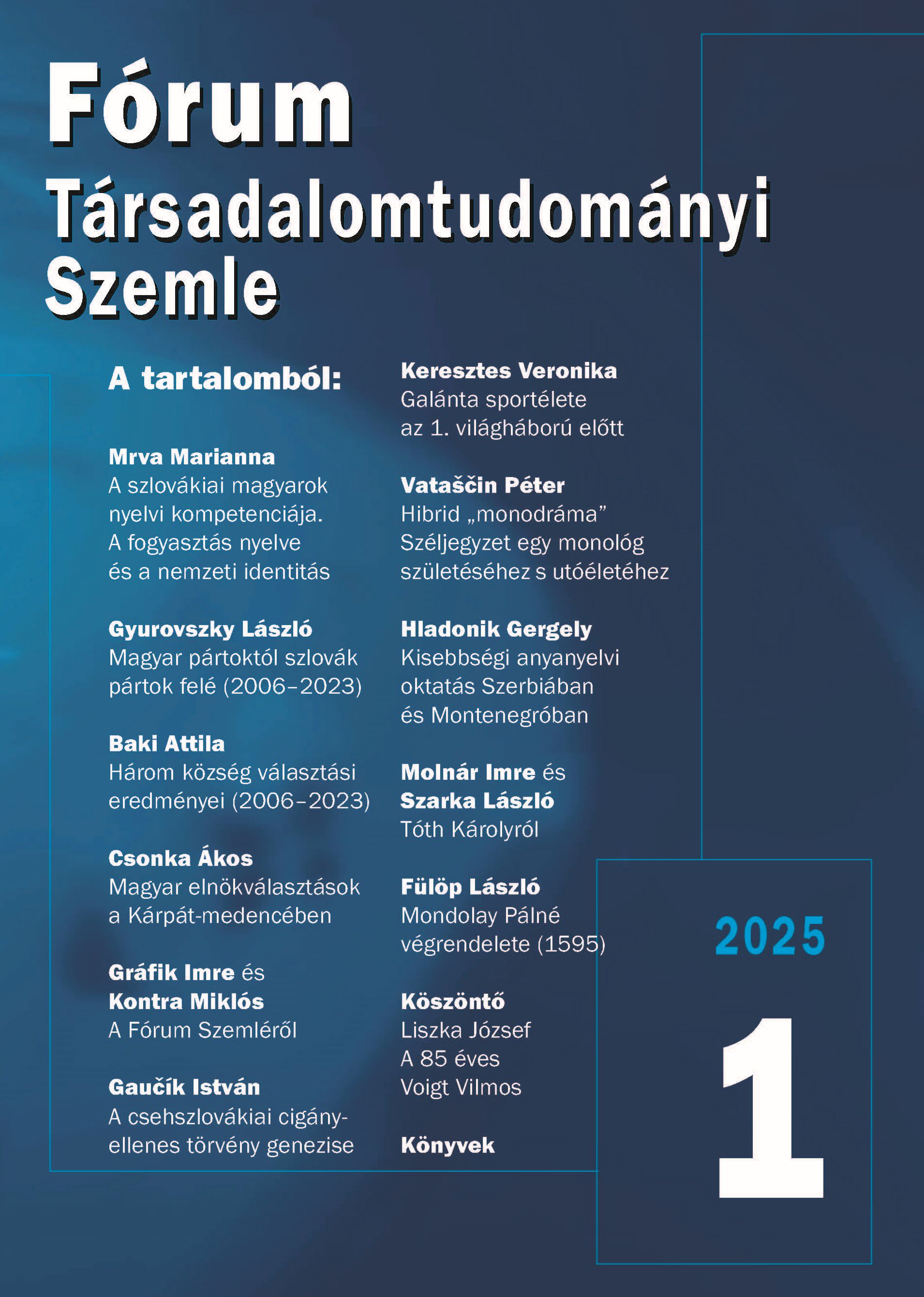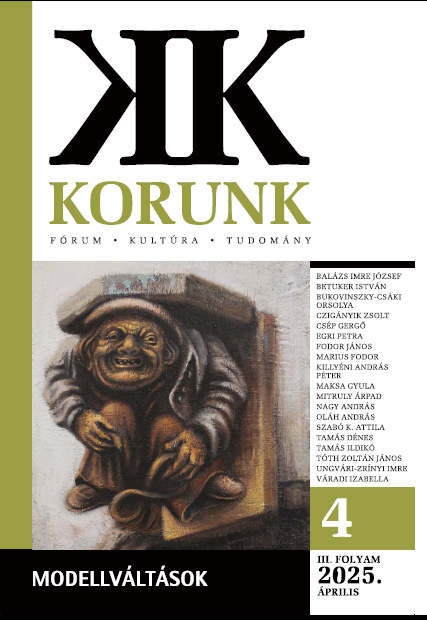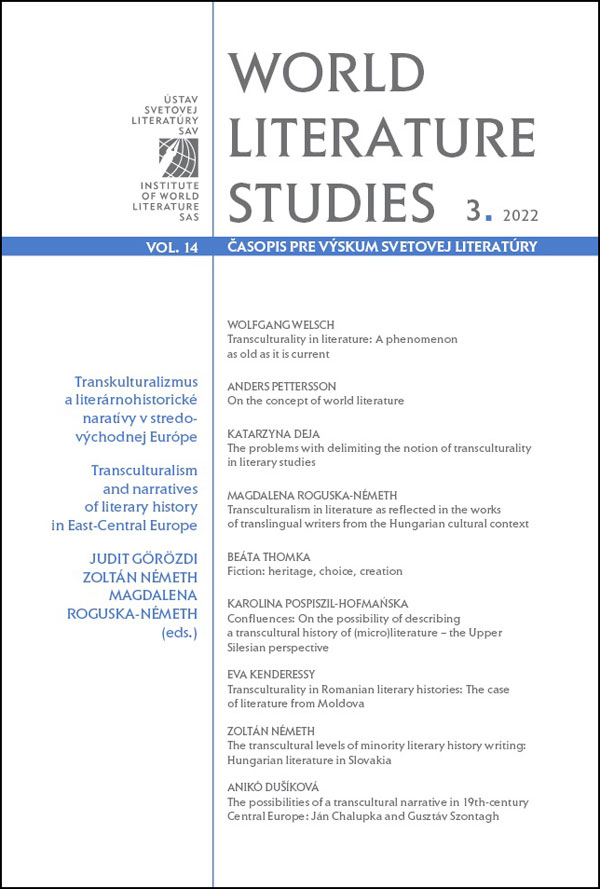
Transculturalism in literature as reflected in the works of translingual writers from the Hungarian cultural context
The aim of the paper is to show the impact of transculturalism on the research conducted in the field of literary studies. The first part presents the history of the concept and lists the most important researchers associated with it, such as Wolfgang Welsch, considered the creator of the concept, and Arianna Dagnino, who is believed to be the most important contemporary researcher of the interconnections of transculturalism with literature. Dagnino is also the author of the definition of the so-called transcultural literature, which is discussed in the paper. The third and last part contains considerations about the place of the so-called transcultural writers in the literary canon. The context for these reflections is provided by three translingual authors of Hungarian origin: Agota Kristof, Edith Bruck and Tibor Fischer.
More...
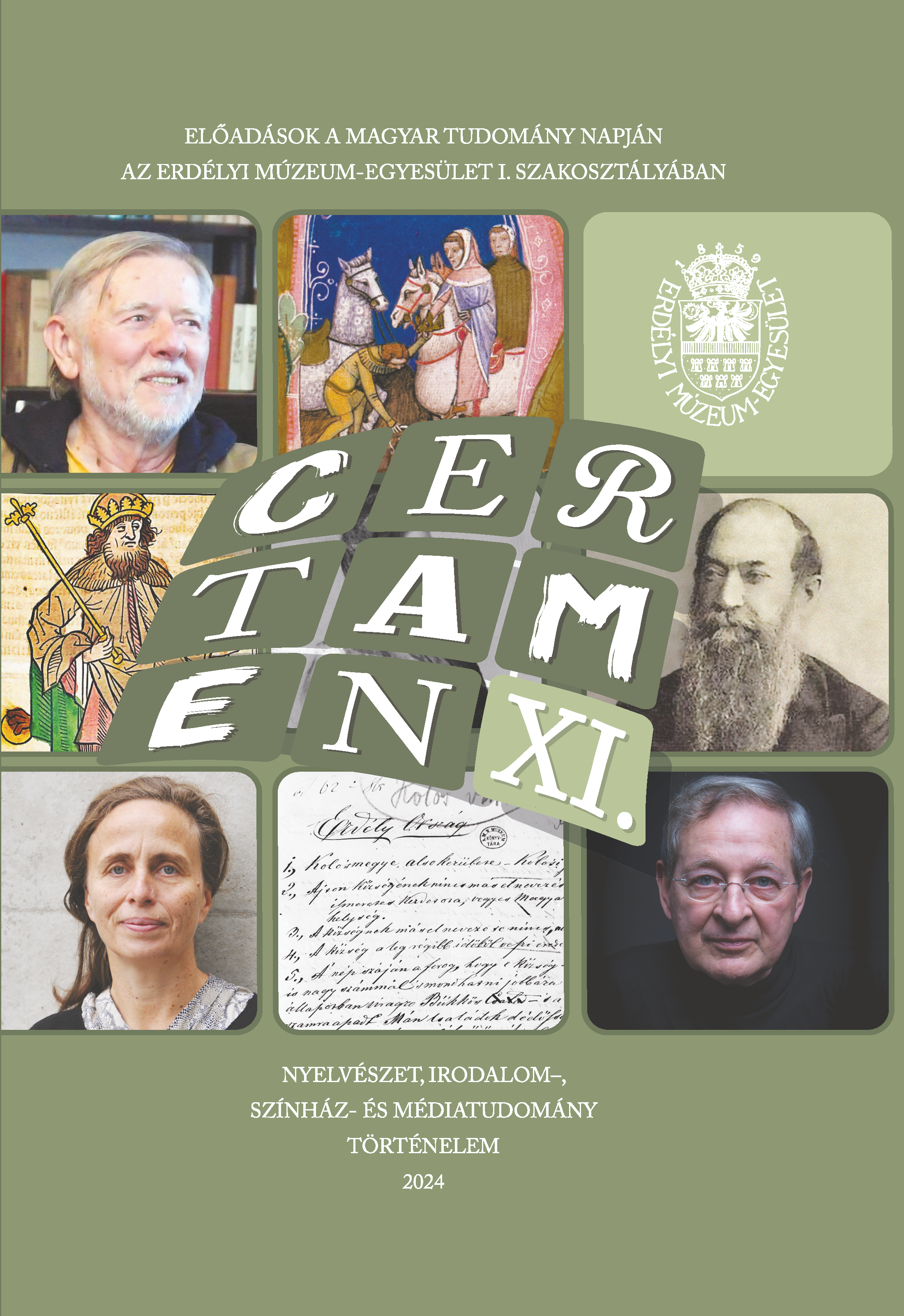

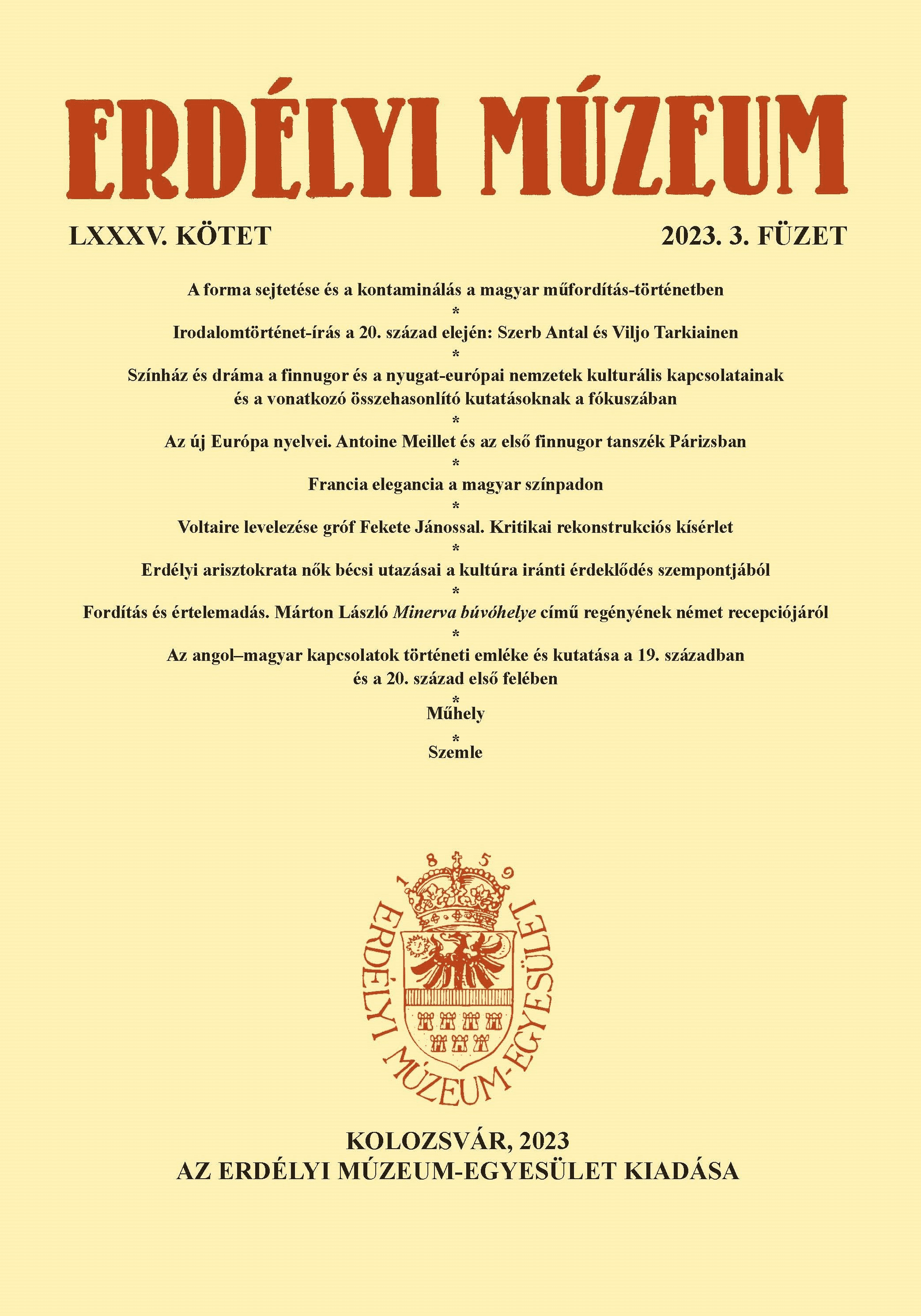


![Music in János Térey’s Verse Novel A Legkisebb Jégkorszak [The Shortest Ice Age]](/api/image/getissuecoverimage?id=picture_2024_86640.jpg)
